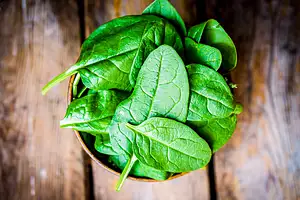Do you plan to dye hard-boiled eggs for your Easter celebration this year? Do you have a plan to use up all of those extra hard-boiled eggs after the Easter egg hunt is over? Keep reading to learn tips for cooking the perfect hard-boiled egg and recipes for putting all your extra hard-boiled eggs to delicious use!
Hard-boiled Egg Facts and Cooking Tips:
Salting the Water:
Have you ever wondered why you should add salt to the boiling water when cooking hard-boiled eggs? Some recipes call for adding salt to the cooking water once it boils. While it isn’t necessary for hard-boiled egg success, there are two advantages of adding salt to the boiling water:
The porous nature of eggshells allows salting the hard-boiled egg cooking water to season the eggs.
Adding salt causes the boiling point of the cooking water to go up, causing the eggs to cook more efficiently.
Which Method of Cooking Hard-boiled Eggs do You Prefer?
Most recipes for hard-boiled eggs begin by bringing a pan of eggs covered in cool water to a boil for a brief amount of time. Then, remove the pan from the heat and let the eggs sit with the lid on for about 10 minutes.
Once this sitting period is complete, the eggs are ready to peel and eat. Some believe hard boiling causes the egg to have a rubbery, unappetizing texture. It can also cause an unappealing green ring around the yolk.
Other recipes recommend cooking the eggs in boiling water for a period of time, depending on the egg size. Then, drain the cooking water off the eggs and cover them with cool water so they can be peeled and eaten.
If you plan to cook your eggs in the microwave, take your eggs out of the shell before micro-baking. If you leave them in the shell, they will likely explode all over your microwave.
To Hard Boil Large Eggs
Place eggs in warm water, covering them by 1 inch. Bring water to a boil and then add salt. Reduce the heat slightly so that the pot will not boil over. Boil the eggs for 7 minutes. Once the boiling time is complete, remove the pot from the heat and carefully drain the hot water off the eggs. Cover the eggs with cool water and allow them to sit for at least 5 minutes before peeling.
To Prepare Eggs By Letting Them Sit In The Pot
Put the eggs in a pan large enough to rest in one layer on the bottom of the pan. Cover the eggs with cold water by 1 inch. Heat the water until it comes just to boiling, and then remove the pot from heat. Cover the pan and let the eggs sit in the pan: 9 minutes for medium eggs, 12 minutes for large eggs, or 15 minutes for extra large eggs. Drain, peel, and serve the eggs, or allow them to cool under running water and store them in the refrigerator.
Selecting Eggs at the Grocery Store
Look for eggs that are clean and uncracked. Egg shells are like a sweater, not a shield. They are porous; any dirt on the shell is absorbed into the egg and can contaminate it, making it inedible.
Keep your eggs in a separate part of the cart from your other groceries to protect them from contamination. You should also keep them in their own carton in the refrigerator until you are ready to cook them so your other groceries do not taint them.
Tips For Peeling Eggs
Eggs are easiest to peel when they are warm. To peel a panful of eggs, keep them in the cooking pot and place the lid on top. Holding the lid securely with one hand and the pot handle with another, gently shake the pan horizontally for about a minute. Remove the lid and peel the eggs.
To peel just a few eggs, take one egg and gently tap it on the counter to crack the shell. Roll the egg on the counter using the palm of your hand to break the shell uniformly. Remove the cracked shell pieces and then rinse the egg with cold water.
Some recommend piercing the end of the egg with a pin before cooking them so they will be easier to peel. This can put your eggs and health at risk. Bacteria from the pin or shell can enter the egg, making it contaminated and unsafe to eat. Even eggs that appear to be visibly clean can still have bacteria on the shell.
Farm-fresh eggs can be difficult to peel. If you want to hard-boil your farm-fresh eggs, allow them to age in the refrigerator for approximately ten days before cooking.
Storage
Peeled eggs should be eaten the same day they are cooked. Hard-boiled eggs with the shell intact can be kept in the refrigerator for about one week.
Follow these delicious Egg Recipes to use up your leftover hard-boiled eggs.
Hellmann’s Boxing Day ‘Bubbly Jubbly’
Peruvian Potato and Chicken Platter
Asparagus with Egg Garlic Lemon Sauce
Salads :
Vegetable Salad with Romesco Sauce
Green :
Arugula Salad with Garlic Croutons, Gruyere and Eggs
Mixed Greens with Cucumber, Chives and Parsley Vinaigrette
Spinach and Bacon Salad with Water Chestnuts, Bean Sprouts and Mushrooms
Asparagus and Mixed Baby Greens Salad
Potato :
Hungarian Potato and Egg Casserole
Macaroni :
Bean :
Egg :
Amazing Classic Egg Salad For Two
Seafood :
Pike Sandwiches with Cambridge Sauce
Scallops and Mussels with Mustard Vinaigrette
Pickled Eggs :
Curry :
Soups and Stews :










Comments